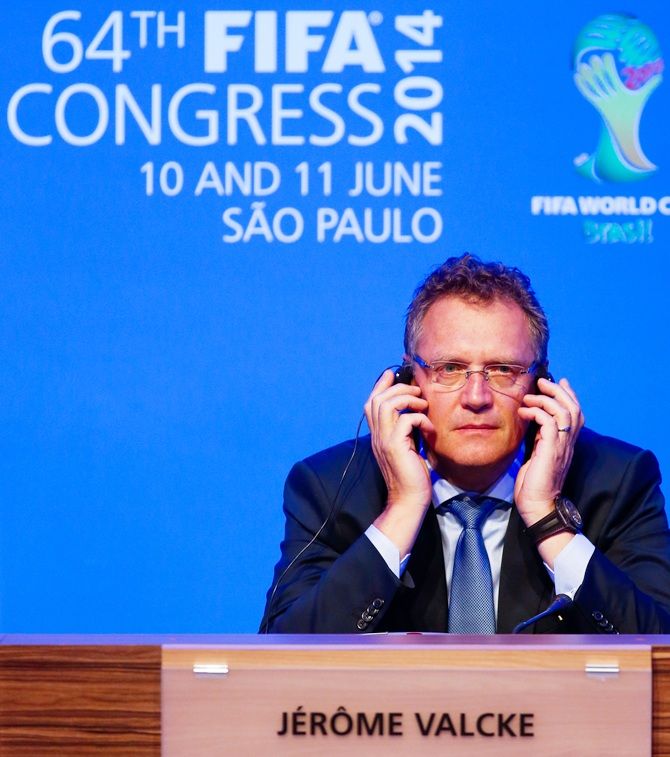
While a glitzy new league may inspire youngsters to take up the sport, India's hopes of becoming a soccer power rest with its development at a grassroots level, according to FIFA secretary general Jerome Valcke.
A host of veteran European players, including World Cup winners Alessandro Del Piero, Marco Materazzi, Joan Capdevila, David Trezeguet and Robert Pires, have all signed up to play in the Indian Super League (ISL), that kicked off on Sunday.
The tournament has been warmly received by the Indian public so far and while it is too early to predict whether it will be a long-term success, Valcke feels that improvements lower down the pyramid are necessary for the overall health of the sport.
"When we were presented the project and began working with the Indian federation, we wanted to do whatever we could to promote or help the development of football in India," Valcke told the ISL website.
"However, what is important is that whenever you do something at the top level, you don't forget about the grassroots programmes and to develop football at the level of the kids.
"That's how you build football in a country."
Despite a population of 1.2 billion, India remains obsessed with cricket and is only 158th in FIFA's soccer rankings, leading the governing body's president Sepp Blatter to refer to the country as a 'sleeping giant'.
Soccer remains popular only in certain areas of the country, while the appetite to watch televised games is restricted to the English Premier League or Spain's La Liga.
One goal
FIFA has awarded India the responsibility to host the under-17 World Cup in 2017 as part of the body's endeavour towards grassroots development.
"India has huge potential. The ISL is helping; the Indian league is there as well," said Valcke, who was in Delhi on Tuesday to watch Del Piero's Delhi franchise host FC Pune City at the Jawaharlal Nehru Stadium.
"We must make sure that we're all together with one goal -- to develop football in India and help India play in the World Cup sooner."
While appreciating the importance of the presence of the international stars, who are all past their prime, Valcke pressed on the need to develop local players.
"I think it's important because these stars are who kids everywhere are dreaming about. So it's a way to attract more youngsters to watch and even play the game," Valcke, who also met the country's sports minister to seek support to develop soccer infrastructure, said.
"However, we have to ensure that there's a mix of local players and star players from abroad. It shouldn't be, as we have seen at some European clubs, that none of the local players are playing in the XI.
"We always have to maintain a balance between local players and international stars. That's how you create strong footballers in a country."












